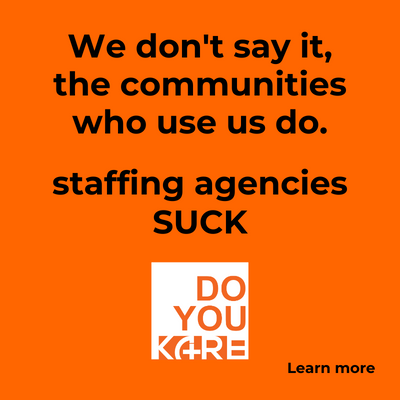We recently had a meeting with some of our memory care families. It was by far one of the most difficult meetings I’ve ever had.
We recently had a meeting with some of our memory care families. It was by far one of the most difficult meetings I’ve ever had. We initiated the meeting to discuss a new program we are starting within our memory care neighborhood. Our whole team spent countless hours researching it and strategically planning how we’d implement this program that would further contribute to their quality of life.
We had already met with one set of families and feedback had been positive, leading us to believe successives meetings with the remaining families would be equally positive. Onward we pressed and arranged for another evening meeting. We had some light fare, wine, and the room set up. As the families arrived we were excited to share what we thought was a very exciting new program. We were in no way prepared for what he heard.
Knocking the Wind Out of Our Sails
As I introduced the program, the families were silent, but after a few minutes they started to ask questions. At first their questions seemed quite run of the mill; but as we continued they became increasingly more pointed and it was clear that they were not as excited as we were about this program. In fact, their reactions as the meeting continued were downright visceral.
They were convinced that what we were presenting was going to have just the opposite of the desired effect and they were upset. Very upset. To state that we were shocked would be an understatement. We had done the research and were looking forward to making our memory care neighborhood even better by further specializing the activities and thus increasing greater resident engagement. Instead we heard from families that they did not like the idea.
Fear of Change
As we talked more it became very clear why they were so upset. They were articulate about why they were leery of any proposed changes. The reason was because their loved ones were doing so well. In fact, they were flourishing. They didn’t want that to change. They were forceful in communicating with us that they had seen remarkable changes in each of their loved ones and they were afraid that any changes would disrupt the great progress that had already been achieved.
Another Point of View
The two other managers who facilitated the meeting with me were as blindsided as I was, to the family’s reactions. There were tears from the families and the staff. On our side, we were aghast that they had perceived that we would desire to make a change that would negatively impact their loved ones quality of life. On their side, they were terribly frightened that their loved ones, who were doing so well, would not fare quite so successfully with this change of programming and they’d see them decline.
Anyone who has worked in a community that has a memory care component knows there is quite a different dynamic involved when interacting with families. Often there is denial, guilt, and despair that their loved one is no longer the person they once knew. Combine that with a move to a memory care neighborhood, typically a secured one, and it is often a recipe for volatility. I find that the families of these special residents often react more strongly that other families. Often they have a tougher time adjusting to their loved ones placement than the resident themselves. Given that knowledge, it should have been no surprise that they reacted as strongly as they did to our “fantastic” news of a new program.
Reconciliation and Moving Ahead
After realizing that our pitch of a quality of life enhancing program wasn’t received as we hoped it would be, we had a decision before us: either forge ahead with our plan and let the chips fall where they may, or course-correct and choose to implement the program in incremental steps they could more easily accept. We chose the latter. Sure, it wasn’t the easiest path to get where we wanted to go, but we needed to listen to our families and show them that we were indeed not wavering from being the providers they had grown to trust and depend upon for their loved ones care.
The Silver Lining
In the midst of this tumultuous meeting there was a very bright silver lining though; they shared some of the best feedback we have heard to date about the success of our memory care program. Out of the emotional reactions to the meeting came declarations of how much they love our community; how they’ve seen their loved one talk again for the first time in a few years; how they love us (exact words) and selected the neighborhood based upon their faith in our commitment to our residents. In the midst of this incredibly stressful encounter we heard some of the most exceptional sentiments ever shared with regard to our oversight of this group of memory-impaired individuals.
Hearing that feedback gave us hope in the midst of a very tough meeting. It showed us that when we plan something we need to look at all the angles and not expect total acceptance just because we think it is a great idea. It also revealed that those knee-jerk reactions we faced were due to their satisfaction with our program and the fear that it might change for the worse. And finally, it gave us the wisdom to continue with a different approach while being spurred on by the gratitude they displayed even in the midst of disagreeing.
The takeaway: never shrink back from difficult feedback. Almost always, albeit hidden at times, there is a lovely bright side that reveals itself in time.
Leslie








